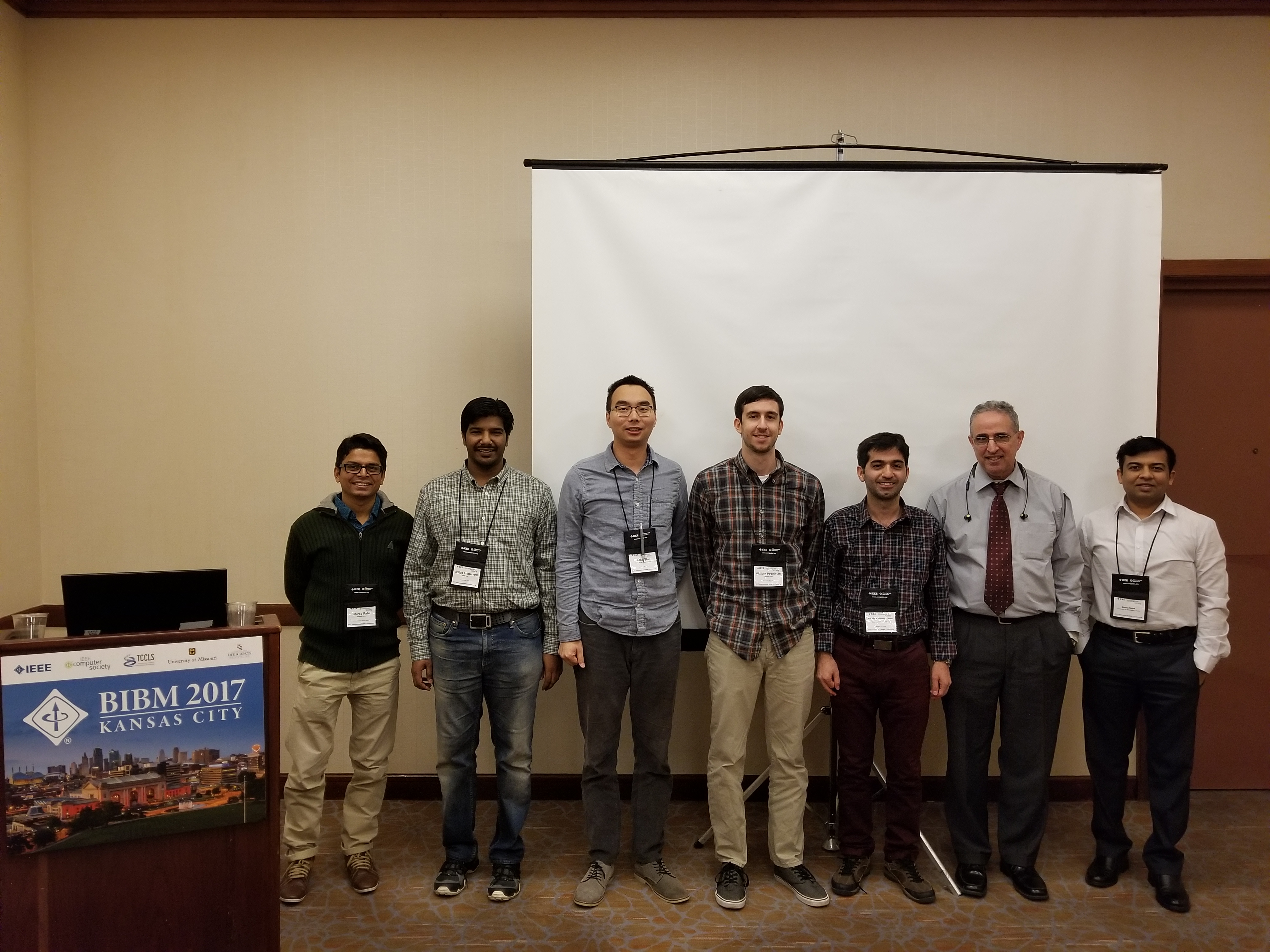
The first workshop on High Throughput Computing in Bioinformatics and Biomedicine using Open Science Grid (BIOSG'17) was held on November 13th, 2017 in Kansas City, MO, in conjunction with the IEEE International Conference on Bioinformatics and Biomedicine (BIBM 2017). The goal of this workshop was to bring together scientists in the fields of bioinformatics, biomedical sciences and high-throughput computing to discuss the challenges of omics applications and the benefits of using distributed computing for divisible workloads. With this workshop, we aimed to encourage and motivate researchers to develop efficient scientific workflows, analysis pipelines and algorithms that can utilize OSG.
BIOSG'17 was co-chaired by Dr. Juan Cui, assistant professor of computer science and engineering at the University of Nebraska-Lincoln, and Dr. David Swanson, research professor of computer science and engineering at the University of Nebraska-Lincoln. The workshop had a program committee consisting of several experienced and accomplished researchers and professors in the related fields, as well as 2 students-volunteers.
After detailed review, BIOSG'17 accepted 7 technical papers focusing on diverse bioinformatics/biomedical research conducted on OSG. These papers will be included in the Workshop Proceedings published by the IEEE Computer Society Press. The topics of the accepted papers varied from biomechanics, neuroimaging and network modeling to few omics applications. These selected papers showed the multidisciplinary character of research that can benefit from OSG.
The program of BIOSG’17 comprised of welcome and closing remarks, paper presentations, one invited keynote talk and interactive Q&A session. Dr. Donald Krieger, a research scientist at the Department of Neurological Surgery at the University of Pittsburgh, gave the keynote talk. Dr. Krieger presented his research on high resolution functional brain imaging using workflow management systems on OSG. His talk was well accepted by the audience and finished with an open discussion. After each paper presentation there was short Q&A session in which the participants asked set of questions and interacted with the presenters.
During the past 12 months, more than 30 projects in the fields of bioinformatics, biological and medical sciences have been deployed on OSG. These projects had utilized more than 64 million CPU hours to perform analysis, which would have taken over 7,324 years on a standard computer. With the OSG, researchers are able to examine a wide range of genomic data and extract novel and insightful discoveries while obeying time constraints.
BIOSG’17 was well received and attracted about 20 presenters and participants from academia and research institutions. The positive feedback and the relevant topics encourage us to organize this workshop again next year.
More details at: http://sbbi-panda.unl.edu/bibm2017/